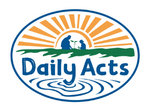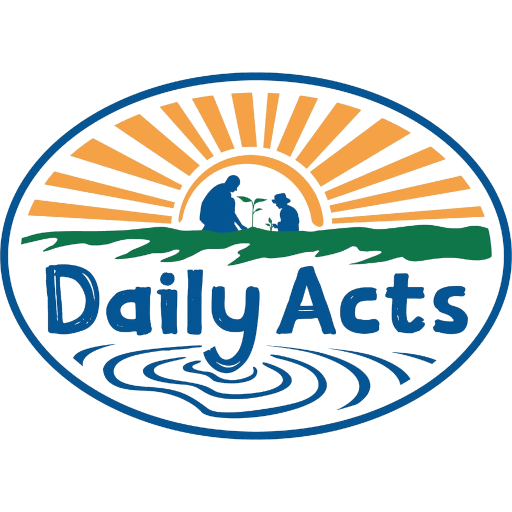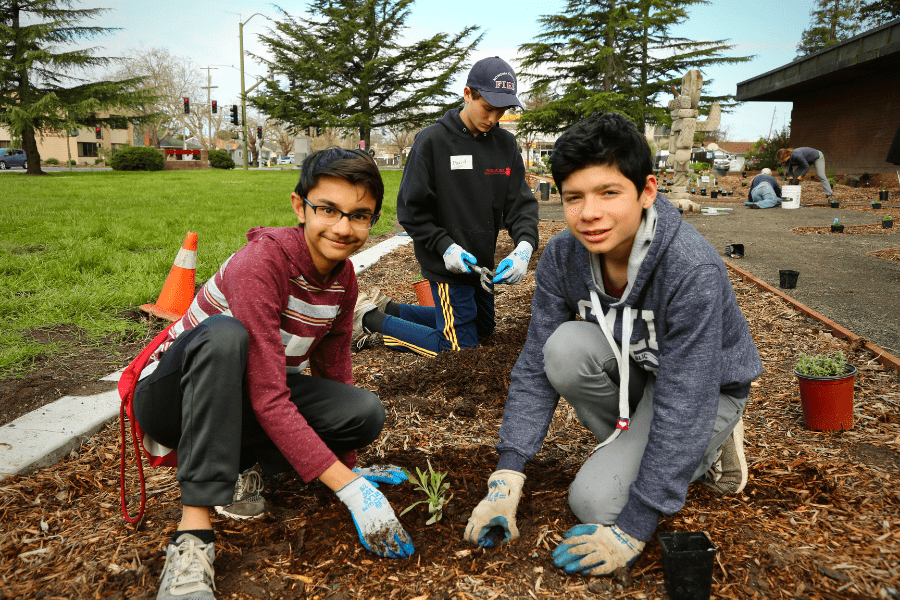Statement on Equity
To support connected, climate-resilient and healthy communities for all, Daily Acts commits to advocating for policies and programs that empower underrepresented people to co-create an abundantly diverse, inclusive and equitable world. Within this work, we acknowledge that we are deepening our awareness and have a long journey ahead.
Our Definition of Equity
Equity embodies the values, policies, and practices that ensure all people receive fair distribution of programmatic, financial, and informational resources. It ensures that there is diversity among decision makers who are supported by the elimination of barriers to participation developing policies and programs. “All people” includes, but is not limited to, those who have been historically underrepresented based on race/ethnicity, language, age, ability, sexual orientation, gender, gender identity, socioeconomic status, geography, citizenship status, and/or religion.
Acknowledgements and Affirmations
- We recognize and hold deep gratitude to the original land stewards in Sonoma County, the Southern Pomo, Kashia Pomo and the Coast Miwok. We uplift traditional ecological knowledge as a model for how we can live in regenerative relationships with our ecosystems and wildlife.
- In the United States, historical systems of power granted land ownership and access unequally such that current land access remains inequitably dispersed. Efforts to preserve and protect our environment are reflective of the cultures of colonialism, capitalism, patriarchy and white supremacy in which they developed. The resulting systems of power and privilege must be continuously addressed, shifted and equitably shared.
- We acknowledge that whiteness and race are socially constructed concepts, and that white supremacy is the erroneous belief, ideology, paradigm, institutional system and/or worldview that white people are superior to people of other ethnic backgrounds.
- We believe everyone deserves equal access to safe spaces to gather, build connections, and grow medicine, food and habitat, which is essential to the long-term viability of people and planet.
- We must hold ourselves accountable, because continuing to learn to see, acknowledge and challenge inequality while working in partnership is how we make change happen. Equity is a process as well as an outcome.
Where We’ve Been: A snapshot of past work to integrate equity.
As cultural awareness has shifted around equity, our awareness of what is needed has shifted in kind. Below highlights some of the work we have done to date on these efforts:
- Staff Training
- Executive Director completed a 1-day anti-racism training in 2014.
- Program staff participated in a 2-day equity training focused on inclusive environmental education through SEEC with Youth Outside in 2017.
- Full staff and board participated in a 4-day cultural competency training.
- Staff participated in 8-week Center for Mind-Body Medicine training to bring increased self-awareness and hold space for courageous conversations within the team.
- Staff participated four internal anti-racism trainings and management team participated in DIEB coaching in 2021.
- Internal Organizational Efforts
- Created Board Fellowship program to recruit People of Color and to promote diverse perspectives within our board leadership.
- Our Work Through Coalitions
- Core member of Just Resilience Collaborative for two years with Norcal Resilience Network, Transition U.S. and Bay Localize/Rooted In Resilience.
- Advocated for equitable climate action to be made a top priority for the City of Petaluma through Climate Action Petaluma.
- Supported a training on Environmental Justice led by the North Bay Organizing Project.
- Our Programs in the Community
- Integrated discussions on power and privilege into the program for Leadership Institute for Just and Resilient Communities.
- Hosted bilingual and Spanish language workshops.
- Installed gardens that benefit previously shelterless veterans at Veterans Village, previously shelterless families at Park Village, and first-time homeowners at Habitat for Humanity.
- Installed landscapes alongside people who lost their homes during the 2017 fires.
- Implemented the Integrated Regional Water Management Plan Disadvantaged Communities Outreach Program.
- Installed gardens at 8 low income schools.
- Partnered with Conservation Corps North Bay, which serves disadvantaged youth, on 30 landscapes in 30 days transformation.
- Created a procurement policy that prioritizes food purchases that are Fair Trade, local, organic and directly from farms, as well as using recycled materials.


